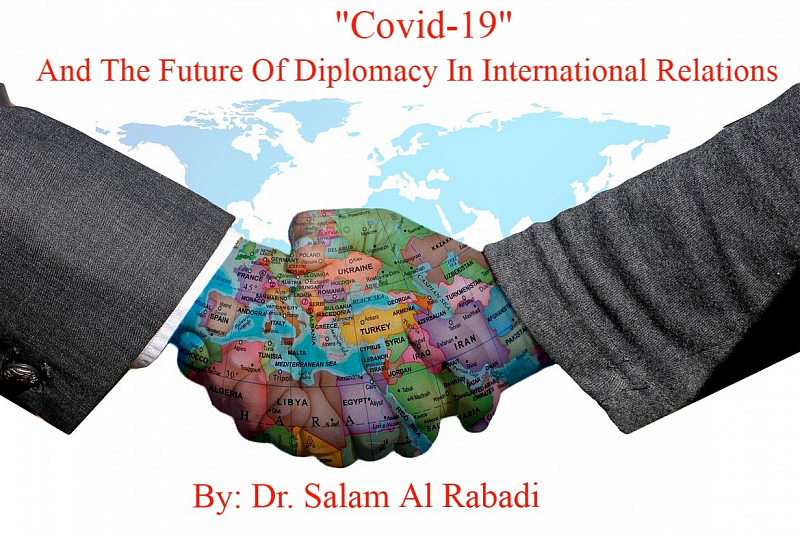"Covid-19" And The Future Of Diplomacy In International Relations
November 21, 2020
0
comments
6875
Views
Add to reader
Print
In
Log in if you are already registered

Dr. Salam Al Rabadi: Researcher In International Relations. Nov,2020.
First of all, when giving an overview of the different conceptual frameworks for diplomacy, a distinction must be made between diplomacy and diplomats, in order to be able to frame the problematics at the level of international relations, It is possible for there to be diplomacy without diplomats, meaning that diplomats are absent from participating in policy-making and diplomatic and political decisions, in addition to their exposure to marginalization when developing, drawing and implementing strategic plans. Therefore,this inevitably necessitates a distinction between diplomacy as a strategic decision and diplomats as influential actors.
In the same context, we must take into account the existence of complex new patterns at the economic, environmental, technological and health levels, which resulted in the increasing influence of some new players on the global arena, thus the international field did not remain monopolized only on the state's activities. Consequently, depending on the influence of the new players and actors, the stakes in international relations became more closely related to humanitarian issues. Accordingly, there are new and different methods of diplomatic work, such as science diplomacy,environmental diplomacy, technology diplomacy, demographic diplomacy, health diplomacy, etc.
In this framework, there is a lot of evidence proving that the traditional diplomacy of countries alone is no longer able to define international relations, as it is possible to go to meetings of the World Trade Organization(WTO) and see how effective the diplomacy of these new actors is. Also, the conferences of sustainable development as a whole reflect the extent of this impact, as well as most global agreements could not have existed without that diplomacy, such as agreements to reduce and cancel debts of poor countries, not to mention the Mine Ban Treaty(Ottawa Treaty), the Convention on Biological Diversity and all environmental agreements..etc.
As well, if we follow all the developments related to the role and effectiveness of the World Health Organization(WHO) at the level of the "Covid-19" pandemic crisis in the year 2020, we can say that they reflect in some aspects the problematics of change in the essence of diplomatic work, not to mention the problematic of the quality of diplomats and how to choose them and which is more effective in combating the pandemic: technocrat diplomat or Political diplomat or technical diplomat?
Consequently, in light of the global reality tense as a result of the "Covid-19" crisis and based on the complex diplomatic frameworks that in the bulk come to express the dialectic of the source of global political strategies and the fate of traditional diplomacy, it became necessary for us to ask:
1- Does the "Covid-19" health crisis reflect the reality of the flaw in political strategies or diplomatic capabilities?
2- Do the emerging bets require separation between diplomacy and diplomats?
3- Does diplomacy need a new strategic direction? or do strategies need to revitalize the role of diplomacy?
|
Share this article
OTHER RECORDS




